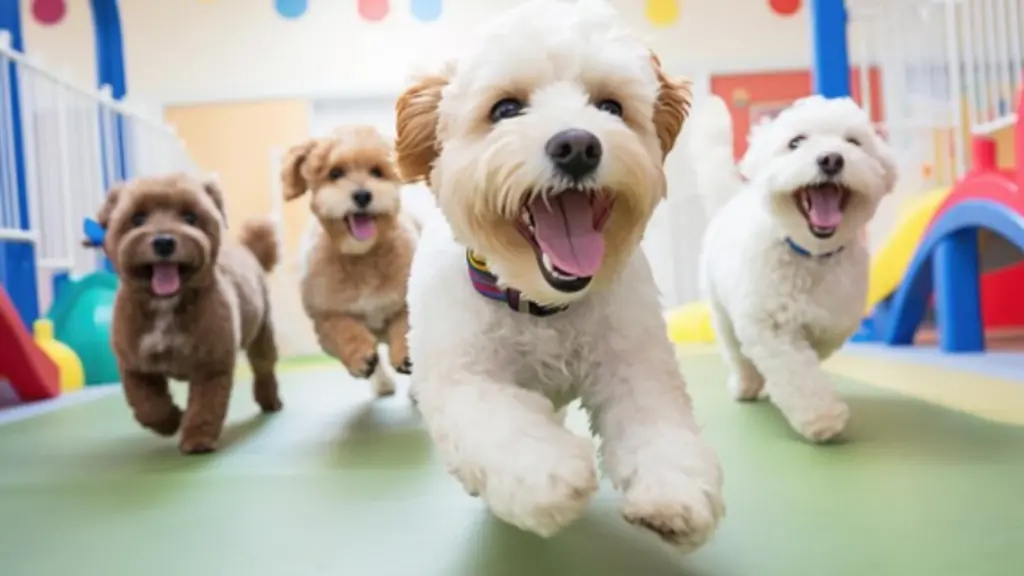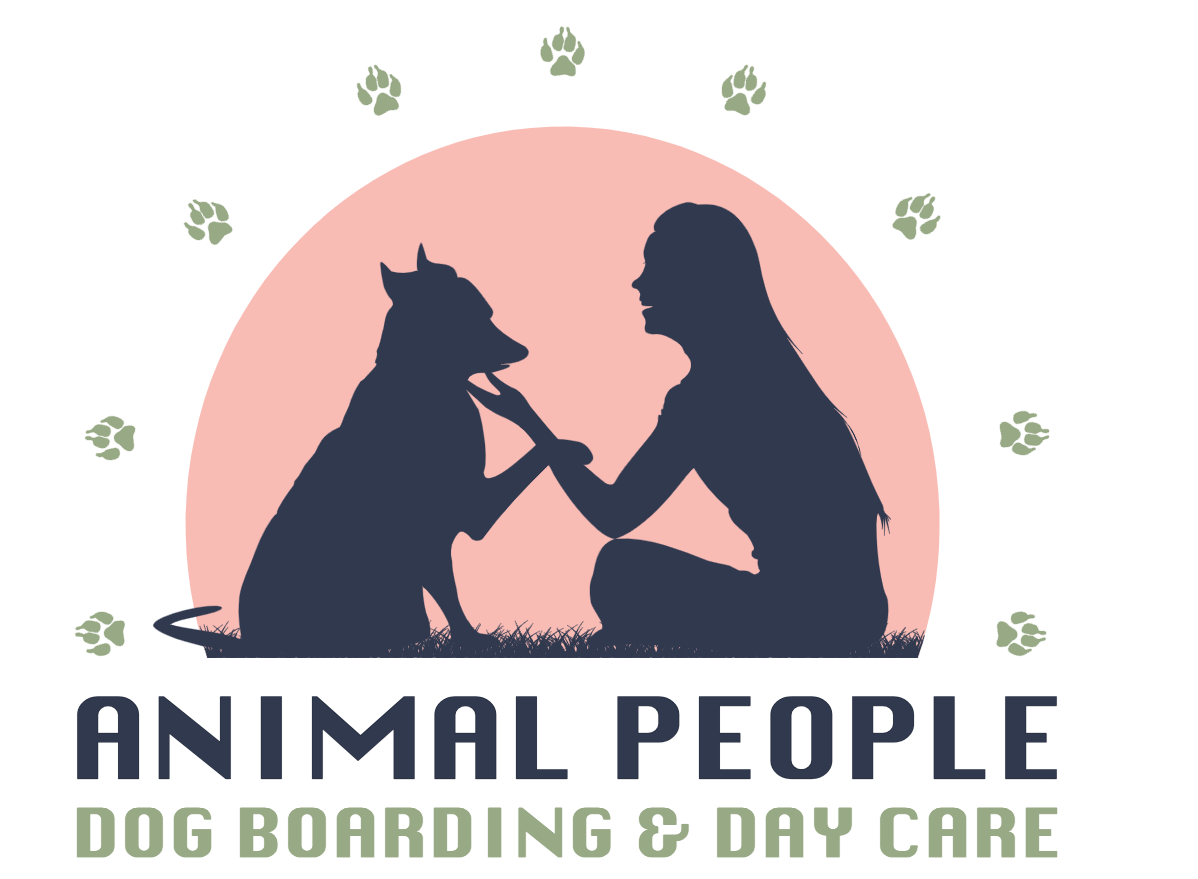Socialization at Dog Daycare: Why It’s Important for Your Dog’s Happiness

Socialization is more than just playtime for dogs; it’s a crucial part of their development and well-being. At dog daycare, your furry friend gets the chance to meet and interact with other dogs in a safe, controlled environment. This isn’t just fun for them—it’s vital.
Much like humans, dogs are social creatures by nature. Regular interaction helps them learn proper behaviors, builds their confidence, and prevents the development of anxiety and aggression. Think of it as their version of hanging out at the coffee shop or the park. They learn to communicate effectively with their peers and pick up on social cues while having a blast running and playing.
Choosing a dog daycare that prioritizes socialization can play a significant role in maintaining your dog’s happiness and health. It’s not just about keeping them busy; it’s about enriching their lives and enhancing their joy.
How does socialization at dog daycare benefit my dog?
Socialization at dog daycare offers numerous benefits for your dog’s overall well-being and happiness:
- Improved Social Skills: Regular interaction with other dogs and people helps your dog develop and maintain healthy social behaviors. This can reduce anxiety and aggression, making your dog more comfortable and well-mannered.
- Physical Exercise: Daycare provides ample opportunities for physical activity, essential for maintaining a healthy weight and overall physical health. Playtime with other dogs keeps your dog active and engaged.
- Mental Stimulation: Socializing with different dogs and engaging in various activities keeps your dog’s mind sharp and stimulated. This mental exercise is crucial for preventing boredom and related behavioral issues.
- Confidence Building: Exposure to new environments, sounds, and situations in a controlled setting can boost your dog’s confidence. A confident dog is more adaptable and better equipped to handle new experiences and environments.
- Routine and Structure: Dog daycare offers a structured environment with regular routines. This can give your dog a sense of security and stability, benefiting their mental well-being.
- Reduced Loneliness and Separation Anxiety: Spending time at daycare prevents your dog from being alone for extended periods, reducing feelings of loneliness and separation anxiety. This can lead to a happier and more relaxed dog at home.
- Behavior Monitoring: Trained staff can observe and manage your dog’s behavior, addressing any issues promptly. This professional oversight helps reinforce good behaviors and corrects undesirable ones in a safe and supportive environment.
Attending dog daycare benefits your dog, leading to a healthier, happier, and more well-adjusted pet.
What are the signs that my dog enjoys dog daycare?
Several signs indicate your dog enjoys dog daycare:
- Excitement on Arrival: If your dog gets excited when approaching the daycare facility or when you mention daycare, it’s a clear sign that it looks forward to it’s time there.
- Eager Departure: Your dog eagerly enters the daycare without hesitation, showing enthusiasm and a willingness to join the activities and see their friends.
- Positive Behavior: When your dog is happy and relaxed during drop-off and pick-up times, they enjoy their time at daycare.
- Social Interaction: Dogs that enjoy daycare often form bonds with other dogs and staff. If your dog seems excited to see specific dogs or staff members, it shows positive social experiences.
- Calmness at Home: A well-exercised and mentally stimulated dog is usually calm and content at home. If your dog returns from daycare relaxed and happy, they had a fulfilling day.
- Healthy Appetite and Sleep: Dogs that enjoy their daycare experience will typically maintain a healthy appetite and sleep well after a day of play and activity.
- Playfulness: Observing your dog during daycare (if possible via webcams or visits), engaging in play, and interacting positively with other dogs is a strong sign they are enjoying themselves.
- Overall Well-Being: A dog that enjoys daycare will generally appear happy and healthy. They will show good mental and physical health signs, such as a shiny coat, bright eyes, and a wagging tail.
These signs collectively indicate that your dog enjoys their daycare experience, benefiting from the socialization, exercise, and mental stimulation provided.
How can dog daycare improve my dog’s behavior at home?
Dog daycare can significantly improve your dog’s behavior at home through various means:
- Enhanced Socialization Skills: Regular interaction with other dogs and people at daycare helps your dog develop better social skills. They learn to communicate, play, and behave appropriately in different situations, which translates to better behavior at home.
- Physical Exercise: Daycare provides ample physical activity opportunities, which helps burn off excess energy. Due to pent-up energy, a well-exercised dog is less likely to engage in destructive behaviors, such as chewing furniture or excessive barking.
- Mental Stimulation: The variety of activities and interactions at daycare keep your dog mentally stimulated, reducing boredom. A mentally engaged dog is less likely to develop boredom-related behavioral problems, such as digging or whining.
- Routine and Structure: Daycares offer a structured environment with regular routines. This can instill a sense of discipline and predictability in your dog, leading to improved behavior at home, where routines are easier to establish and maintain.
- Reduced Separation Anxiety: Spending time away from home in a positive environment helps reduce separation anxiety. Dogs used to being left alone for extended periods often exhibit destructive behavior due to stress. Regular daycare visits can ease this anxiety, leading to a calmer dog at home.
- Positive Reinforcement: Daycare staff often use positive reinforcement techniques to encourage good behavior. This consistent reinforcement can help your dog learn and maintain desirable behaviors, which will carry over to their behavior at home.
- Observation and Feedback: Trained daycare staff can observe your dog’s behavior and provide valuable feedback on any issues or improvements they notice. This information can help you understand and address specific behavioral concerns more effectively.
- Stress Relief: Daycare’s physical and mental stimulation can help reduce dogs’ stress levels. A less stressed dog is generally better behaved and more relaxed at home.
By addressing these key aspects, dog day care can improve your dog’s overall behavior, making them a happier, healthier, and more well-adjusted pet at home.
Why is socialization crucial for a dog’s overall well-being?
Socialization is crucial for a dog’s overall well-being for several reasons:
- Behavioral Development: Proper socialization helps dogs develop appropriate behavior when interacting with other dogs, people, and their environment. This reduces the likelihood of fear, aggression, and anxiety, leading to a well-mannered and balanced pet.
- Stress Reduction: Well-socialized dogs are less likely to experience stress in new or unfamiliar situations. They become more adaptable and confident, which helps prevent stress-related behaviors such as excessive barking, whining, or destructive chewing.
- Mental Stimulation: Social interactions provide essential mental stimulation, keeping dogs engaged and mentally healthy. Boredom can lead to behavioral issues, but a well-socialized dog is less likely to become bored and more likely to remain mentally sharp.
- Physical Health: Regular socialization often involves physical activity, whether playing with other dogs or exploring new environments. This physical exercise is vital for maintaining a healthy weight and overall physical health.
- Prevention of Behavioral Problems: Dogs not properly socialized may develop behavioral problems such as fearfulness, aggression, or separation anxiety. Early and consistent socialization helps prevent these issues, making for a more well-adjusted and happy dog.
- Improved Quality of Life: A well-socialized dog can enjoy a fuller life, participating in various activities without fear or aggression. This includes going to the park, attending daycare, traveling, and being around different people and animals.
- Strengthening the Human-Dog Bond: Socialization activities often involve interactions with the dog’s owner, strengthening the bond between them. Training classes, playdates, and social outings provide opportunities for positive reinforcement and shared experiences.
- Safety: A well-socialized dog is less likely to react negatively in unexpected situations, making it safer to be around other people and animals. It is also more predictable and easier to control, reducing the risk of accidents or incidents.
Socialization is essential for a dog’s mental, emotional, and physical health. It leads to a happier, healthier, and more balanced pet. It helps dogs develop the skills to navigate the world confidently and safely, enhancing their overall well-being.
Boost Your Dog’s Happiness!
At Animal People Dog Boarding & Day Care, we provide a safe and engaging environment where your dog can socialize, play, and thrive. Regular interaction with other dogs and our caring staff helps improve their social skills, reduces anxiety, and keeps them mentally and physically stimulated.
Whether it’s a high-energy breed needing exercise or a shy pup building confidence, our tailored activities ensure your dog’s overall well-being. Trust us to create a joyful and enriching experience for your furry friend. Enroll your dog today and see the positive changes in their happiness and behavior!
